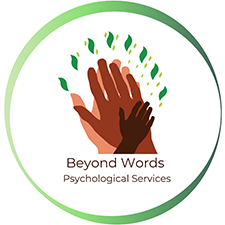The One Thing You Cannot Ask Your Child’s Therapist To Do
As an adoption-competent therapist, there are a number of areas in which I can offer support to your child. If they have separation anxiety, I can help them feel secure in knowing their loved ones will do everything in their power to return. If they worry about being hurt by caregivers, I can help them work through the impact of negative experiences to feel safe in the present. If they struggle with managing their anger, I can help them identify and cope with their underlying emotions to prevent the escalation. If they feel overwhelmed when people ask them questions about being adopted, I can help them feel confident in their responses.
But there is one thing that I will never, ever be able to do for your child.
Don’t ask me to help them feel positive about their racial identity. I can’t do that.
And if you are a White adoptive parent to a child of color – neither can you.
There is only one way for your child to feel genuinely positive about their racial identity. They must have daily racial mirrors. There is no substitute.
Yes, driving across town so that your Guatemalan child can join the soccer team with a Latinx coach is helpful. Yes, making sure your Chinese child is in a Mandarin language class with other Asian children is helpful. Yes, taking your Ethiopian child to an Ethiopian restaurant in your town once a month is helpful. Yes, taking a trip to your child’s country of birth is helpful. Yes, attending adoption heritage camp each summer is helpful. Yes, celebrating traditional holidays, cooking traditional meals, and buying traditional clothing from your child’s birth country is helpful.
But it’s not enough. It never will be. Unless your child has real relationships with people who look like them, it will never be enough.
How do I know this? Because the research tells me so. Because my clinical work as a psychologist tells me so. Because being the non-Black parent of a Black adoptee tells me so. Because I’m an adoptee of color and my experiences tell me so.
Born in India, and raised in mostly White communities, I would have told you as a child that having brown skin wasn’t that big of a deal. It bothered me at times, but I had friends, I did well in school, and I was happy. Except that I wasn’t – not completely. It wasn’t until I was adult that I realized what I was missing. I didn’t have the words to explain it as a child, but the feeling of not belonging was on a constant running loop in the back of my mind. The constant wish to be blond-haired and blue-eyed, the constant wondering about whether that boy had a crush on my friend instead of me because I was Asian and she was White, the constant fear of awkward assumptions about where I was from, what language I spoke, and how exotic I appeared.
My parents, family members, and friends told me I was beautiful. But it was like a supermodel walking up to an average person on the street and reassuring them of their beauty. It felt ridiculous. I felt incredulous. If you don’t look like me, you don’t get to reassure of me of the value of my appearance. Until you’ve had another child tell you your skin is the color of poop, you don’t get to tell me about the gorgeousness of my skin tone. Until you’ve had children refuse to play with you because of your skin color, you don’t get to tell me about the loveliness of brown skin. Until you’ve been told by your long-time high school boyfriend that he almost broke up with you after the first date because he didn’t expect to like a girl who wasn’t White, you don’t get to tell me that I should feel confident about how I look.
Until you’ve experienced the pain of looking like me and survived it, you don’t get to tell me about the benefits. Until you’ve overcome the hurt and thrived in spite of it, and developed a sense of success, confidence, empowerment, and genuine trust in the absolutely astounding beauty of OUR skin color – your words carry no weight.
There is no substitute for daily racial mirrors. Your children need people who can teach them how to feel pride in their racial identity. It’s something even the best adoption-competent therapist cannot do, so please don’t ask.
